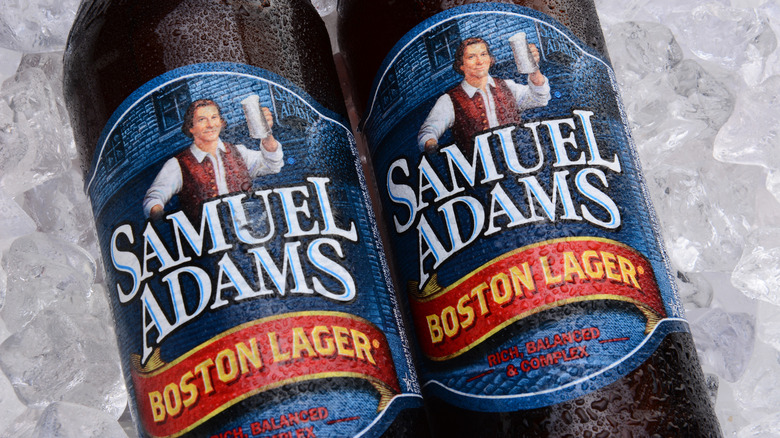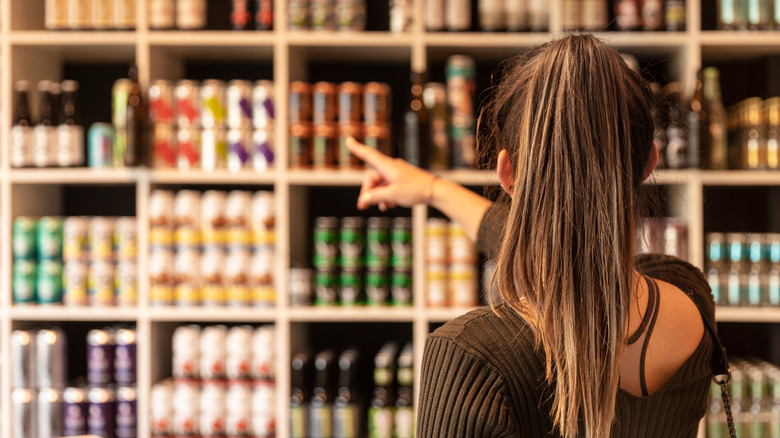Is Sam Adams' New Beer Really Illegal In 15 States?
On October 11, many Americans will be able to purchase Sam Adams' most premium product: Utopias. The company's press release explains that the biennial beverage is made from a blend of beers, some of which age for decades in bourbon casks. This year's batch was also finished with Michigan Balaton cherries to bring out sweet and tart flavors.
However, only some Americans have the opportunity to buy a bottle from this limited batch. In part, this is because the "suggested retail price" is $240 for a 25.4-ounce bottle. As CNN reports, only 13,000 bottles are produced once every two years, so they have a strong rarity value. In essence, Sam Adams Utopias are more like a scotch and have a price that reflects this.
But CNN also touches on a more pressing issue. Namely, this Samuel Adams Utopias release has an ABV of 28%. Such an alcohol content in beer is illegal in Alabama, Arkansas, Georgia, Idaho, Missouri, Mississippi, Montana, North Carolina, New Hampshire, Oklahoma, Oregon, South Carolina, Utah, Vermont and West Virginia. That's right. The relatively low alcohol content of most beers is not solely due to the fermented ingredients, but due to regulation. For this reason, you also cannot buy any other absurdly alcoholic beers like Bremeister's Snake Venom, which Thrillist says dwarfs many spirits with its 67.5% ABV. Perhaps it's also for this reason that many established American beers have a reputation of tasting like water.
These laws may be on their way out
This is not the first piece to suggest that the puritanical limits placed on a beer's ABV may be arbitrary and outdated. In 2015, The Week argued that these "archaic" laws were leftover from the period following Prohibition. States could no longer make alcohol illegal, so they put a regulatory framework in place to keep drunkenness to a minimum.
A lot of these limits ranged between 6-10% ABV, which makes it quite difficult to produce and sell many types of craft and German beers. This can be wasteful; if a beer becomes slightly too alcoholic, it can't be sold and so must be flushed. Furthermore, consumers are driven to different states to buy the beer they want. It hurts the economy on both ends.
Such economic considerations may be what have convinced states with ABV limits to raise them, albeit not to the Utopias' 28%. Reporting on the release of Utopias, The Seattle Times notes that states like West Virginia have raised their limits to help the craft beer industry and appease consumers. Jim Koch, founder and owner of The Boston Beer Co. (which makes Sam Adams beers), does not seem daunted by these laws. When asked if Sam Adams will push its ABV even further, he simply said "We'll see."

